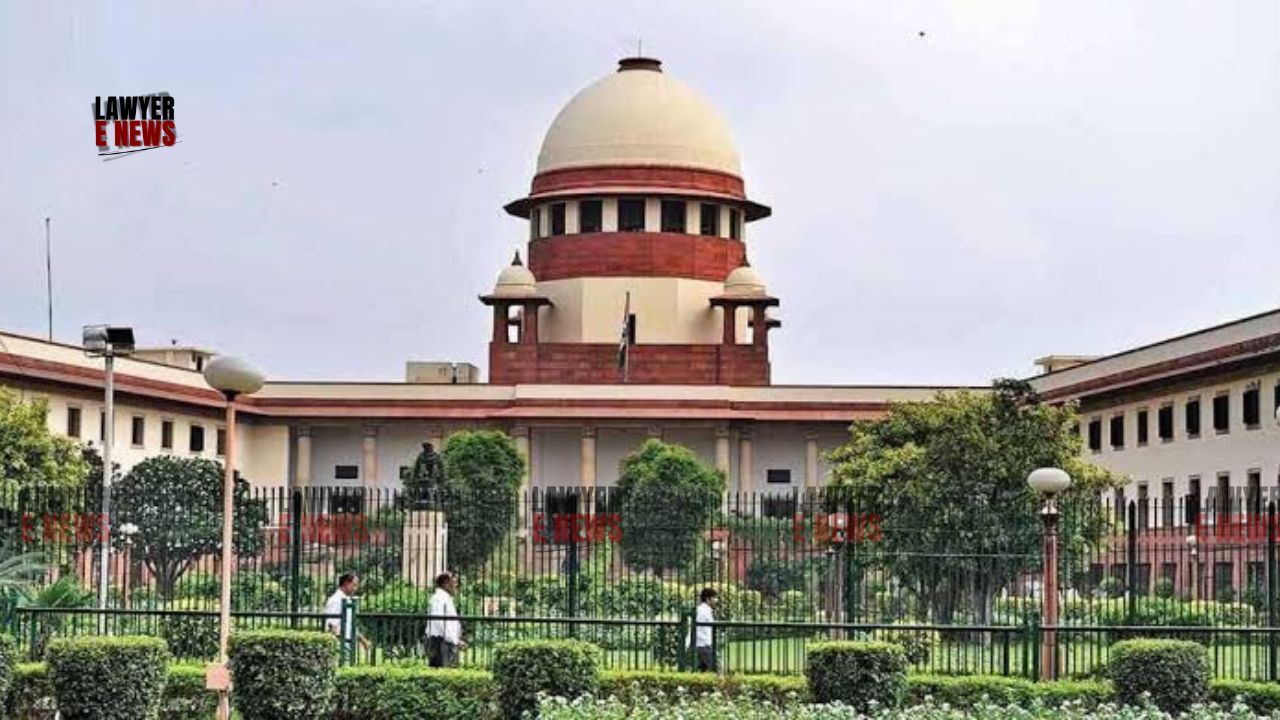-
by Admin
17 February 2026 4:27 AM



There cannot be a simplistic binary between a park or a pond—each serves ecological and social functions based on evolving usage and ground realities”, Supreme Court of India allowing an appeal against the Bombay High Court’s direction to demolish a recreational park allegedly built over a historic lake. The Bench, comprising Justices Surya Kant and Nongmeikapam Kotiswar Singh, decisively ruled in favour of preserving the existing urban green space, warning against “counterproductive remedial intervention” that causes more environmental harm than good.
Balancing Ecology and Urban Development
The case involved the Municipal Corporation of Greater Mumbai’s (MCGM) beautification of a degraded area historically known as “Khajuria Talao” into a public park. The High Court, invoking the Public Trust Doctrine and Articles 48A and 51A(g) of the Constitution, had ordered demolition of the park and restoration of the lake. The Supreme Court, however, held that “environmental jurisprudence must evolve contextually”, recognizing the transformed reality and irreversible ecological and social utility of the green space.
Background: From Decrepit Pond to Urban Oasis
In 2008, MCGM initiated a project to transform neglected spaces into recreational parks. One such site was CTS No. 417 in Kandivali (West), Mumbai. The area, though historically a lake site, had reportedly turned into a garbage dump by 2009. A Rs. 5 crore beautification project was executed, and by 2011, the park had become operational, featuring 200 mature trees, a musical fountain, and community spaces.
A writ petition filed in 2012 alleged that a historic water body had been destroyed, prompting the Bombay High Court to order its restoration. The Collector issued a post-facto sanction in 2014 approving the park, but this was dismissed by the High Court as legally ineffective. The matter reached the Supreme Court, which stayed the demolition in 2018 pending appeal.
“One Public Amenity Has Been Transformed Into Another”: Court Rejects High Court’s Rigid Interpretation
The Supreme Court found that the High Court’s judgment, though rooted in “laudable intentions,” failed to consider on-ground transformation.
“The doctrine [Public Trust] does not operate in isolation but must be harmonized with the objectives of sustainable development and evolving public welfare priorities.”
“Unlike scenarios involving diversion of public resources for private benefit, this case presents a unique situation where one public amenity has been transformed into another that continues to serve the community unconditionally.”
Lake or Illusion? No Evidence of Functioning Water Body
The Court noted that while Khajuria Lake historically existed, there was no conclusive evidence that it functioned as a viable aquatic ecosystem at the time of the redevelopment.
“Nothing has been pleaded or placed on record to demonstrate that the Subject Property was ever a functional pond with significant water content, possessed any natural catchment area… or performed meaningful ecological functions.”
Park’s Ecological and Social Value Recognized
The Court lauded the role of the current park in contributing to public health and biodiversity:
“We are adjudicating this appeal in 2025, nearly fifteen years after the park became functional. An entire generation of children has grown up with this green space as an integral part of their daily existence.”
“It provides an essential green space… with trees and other foliage contributing significantly to oxygen generation, air purification, and microclimate regulation.”
It cautioned that restoration would entail uprooting mature trees and spending crores more to recreate a possibly stagnant, unsustainable water body.
“Environmental Restoration That Harms Ecology Is a Paradox”: Court Condemns Misguided Remediation
“Such an outcome would create a paradox wherein environmental restoration results in greater ecological harm than the original transformation—a classic case of counterproductive remedial intervention.”
The Court noted the risk of health hazards from stagnant water and the irreversible waste of public funds.
On Post-Facto Sanction: Legal Irregularity Not Enough to Undo Public Benefit
Even if the 2014 Collector’s sanction was irregular, the Court emphasized that it "cannot be determinative" at this stage. The key question was not legality but the feasibility and desirability of restoration now.
“The sanction, as it stands, ensures that the Subject Property shall remain dedicated exclusively to recreational purposes in perpetuity.”
The Court also faulted the delay in filing the writ petition:
“The petition was instituted nearly five years after the project’s commencement and well after its completion… This considerable delay has created an irreversible fait accompli.”
Setting aside the High Court’s order, the Court issued forward-looking directions:
Maintain the park permanently as a public green space.
Constitute an Expert Committee to explore developing an alternative water body nearby.
Restore other deteriorated water bodies in Mumbai within one year.
Submit compliance reports every six months to the High Court for three years.
The Court closed by reinforcing the State’s duty to pursue “sustainable urban development practices” that balance infrastructure with ecological values.
Date of Decision: 30 May 2025
